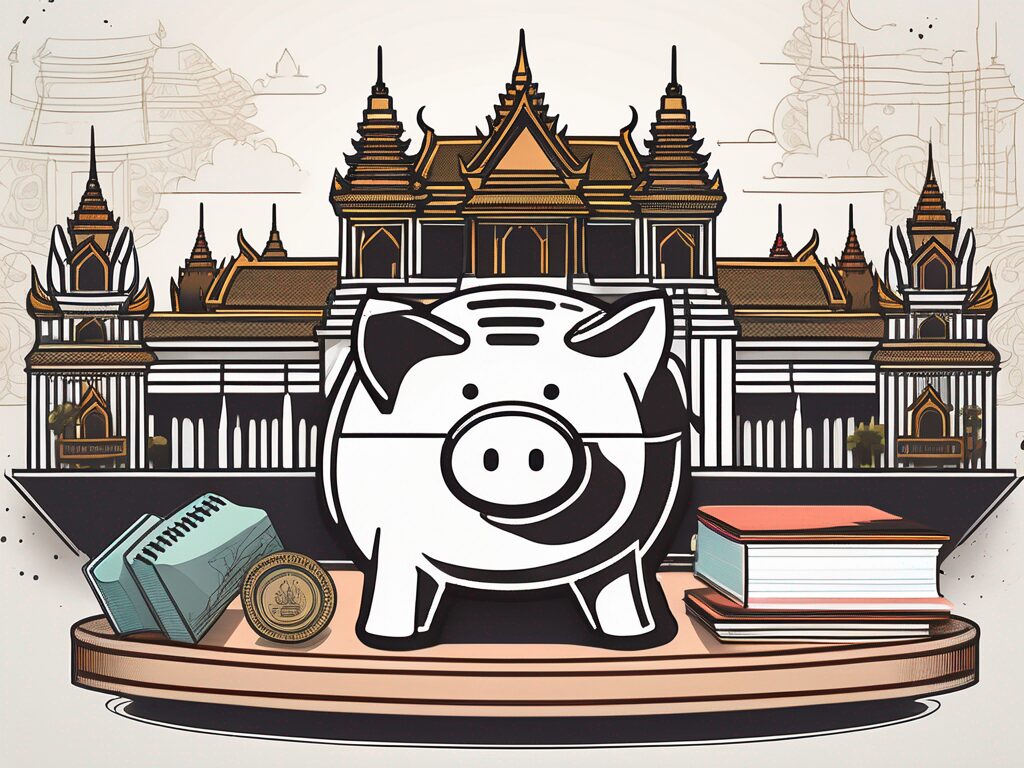Living and working in a foreign country can be an exciting adventure, but it can also be a financial challenge. This is particularly true if you’re teaching English in Bangkok, a city known for its vibrant nightlife, delicious street food, and bustling markets. However, with a bit of planning and some savvy saving strategies, you can enjoy your time in this bustling metropolis without breaking the bank.
Understanding the Cost of Living in Bangkok
Before we delve into the money-saving tips, it’s important to understand the cost of living in Bangkok. The city is a study in contrasts, with luxury shopping malls and high-end restaurants sitting alongside traditional street markets and food stalls. This diversity extends to the cost of living, which can be surprisingly affordable or shockingly expensive, depending on your lifestyle.
For example, a meal at a local food stall might cost you less than £1, while a dinner at a fancy restaurant could easily set you back £50 or more. Similarly, rent for a small apartment in a less trendy neighbourhood might be as low as £200 per month, while a high-end condo in a popular area could cost £800 or more.
As such, the key to saving money in Bangkok is to live like a local as much as possible. This means eating at local food stalls, shopping at local markets, and using public transportation instead of taxis or Grab (the Southeast Asian equivalent of Uber).
How to Save Money on Accommodation
Choosing the Right Neighbourhood
One of the biggest expenses you’ll face in Bangkok is accommodation. However, by choosing the right neighbourhood, you can significantly reduce this cost. Areas like Sukhumvit and Silom are popular with expats and tourists, but they’re also some of the most expensive places to live.
On the other hand, neighbourhoods like Ladprao, Bangkapi, and On Nut offer more affordable accommodation options. These areas are also well-served by public transportation, making it easy to commute to work or explore the city.
Sharing a Flat
Another way to save money on accommodation is by sharing a flat. This is a common practice among expats and can significantly reduce your monthly rent. Plus, it’s a great way to meet new people and make friends in a new city.
There are several websites and Facebook groups where you can find flatmates, such as “Bangkok Expats” and “Bangkok Apartment & Condo Rent”. Just make sure to meet potential flatmates in person and check out the flat before committing to anything.
How to Save Money on Food and Drink
Eating at Local Food Stalls
One of the best ways to save money in Bangkok is by eating at local food stalls. These stalls offer a wide variety of delicious dishes, from pad Thai and green curry to mango sticky rice and coconut pancakes. Plus, a meal at a food stall usually costs less than £1, making it a budget-friendly option.
However, if you’re not used to spicy food, be sure to ask for “mai pet” (not spicy) when ordering. Also, keep in mind that hygiene standards can vary from stall to stall, so it’s best to choose ones that are busy and look clean.
Drinking Local Beer
Drinking can be a major expense in Bangkok, especially if you frequent expat bars or nightclubs. However, you can save a lot of money by drinking local beer instead of imported brands. Local beers like Singha, Chang, and Leo are not only cheaper but also widely available in convenience stores, supermarkets, and local bars.
Just remember to drink responsibly and avoid drinking on the street, as it’s illegal in some areas.
How to Save Money on Transportation
Using Public Transportation
While taxis and Grab are convenient, they can also be quite expensive, especially during peak hours. To save money, consider using public transportation instead. Bangkok has an extensive network of buses, trains, and boats that can take you almost anywhere in the city.
The BTS Skytrain and MRT Subway are particularly useful for getting around the city centre. They’re fast, reliable, and affordable, with fares starting at just £0.30. Plus, they offer great views of the city, making your commute a bit more enjoyable.
Renting a Motorcycle
If you’re comfortable riding a motorcycle, renting one can be a cost-effective way to get around Bangkok. It’s faster than public transportation and gives you the freedom to explore the city at your own pace. However, keep in mind that Bangkok’s traffic can be chaotic, and accidents are common. So, make sure you’re confident in your riding skills and always wear a helmet.
Conclusion
Saving money while teaching English in Bangkok is all about making smart choices and living like a local. By choosing affordable accommodation, eating at local food stalls, and using public transportation, you can significantly reduce your expenses and make your salary go further.
Remember, the goal is not to deprive yourself but to find a balance between enjoying your life in Bangkok and saving money. With a bit of planning and some savvy saving strategies, you can do just that.
Elevate Your Teaching Career with IPGCE
As you navigate the cost of living and seek to maximize your teaching experience in Bangkok, consider the next step in your professional development with IPGCE. The International Postgraduate Certificate in Education is your gateway to overcoming qualification barriers, unlocking career progression, and connecting with a global network of educators. With a proven track record of increasing interview callbacks, promotion rates, and salaries, the iPGCE is the perfect complement to your teaching journey abroad. Embrace the flexibility of online study and enrich your understanding of global education systems. Don’t let inadequate credentials limit your potential. Join the UK’s #1 Teacher Training Course today and transform your teaching career!

